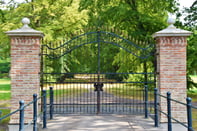Published on
Guiding Higher Ed Faculty In Their Interactions With Adult Learners

As the theme of adult learners continues, I want to take this opportunity to focus on a few strategies and ideas that higher ed institutions could use as they work to improve relationships with adult learners. As previously mentioned in earlier articles, adult learners enter their college programs with anxiety and trepidation. At the same time, a percentage of faculty see these new arrivals (adult learners) with mixed feelings and perceptions. This article will discuss andragogy (the teaching of adults) and offer a few suggestions to college administrators for inclusion in faculty development forums.
In 1968, Malcolm Knowles proposed a new concept aligned with adult learning. This new term, andragogy, focuses on the art and science of helping adults learn.[1] Knowles led the way for higher ed institutions to relate to and plan their courses with adult learners in mind. Colleges would no longer see the adult learners (ages 25 and higher) as mere extensions of the traditional college students. As I pointed out in an earlier article, Smoothing the Journey for Adult Learners: Helpful Strategies for Higher Ed Institutions, today’s colleges are observing a new campus population. This population needs to be seen as a vibrant and active student body intent on learning and growing. Within this premise, the andragogy foundation grows and embodies the missions of the universities and colleges.
Faculty perception of adult learners carries tremendous weight in the planning, development and delivery of courses. During my years as a campus dean, I observed both extremes of the spectrum. I saw professors uncomfortable with adult learners. These professors seldom acknowledged the worth and skills adult learners brought to their respective classes. I felt this non-inclusive behavior was a detriment to the classroom learning environment.
At the other end of the spectrum, I witnessed, during classroom visits, many professors who embraced and encouraged adult learners’ contributions and noted their skills and backgrounds. For various reasons, the majority of professors whom I observed were in the category focused on experimenting with inclusion, and yet, not totally accepting the values and skills of adult learners. After conversing with these professors, I discovered that they were reluctant to reach out and connect with the adult learners for the following reasons: they were hesitant in connecting due to training in this area, previous negative incidents with adult learners, and were too regimented in their core curriculum to see the significance of connecting with adult learners.
I feel the following strategies would be helpful in developing meaningful forums through which to reach out and understand the uniqueness of adult learners:
- Discuss andragogy at faculty meetings
- Solicit input from various deans and department chairs on their thoughts regarding adult learners
- Survey second- and third-semester adult learners as to their comfort levels with classes and professors
- Explore national student survey databases in relation to adult learners and key topic areas of investment
In continuing the theme of strategies involving schools and adult learners, the following techniques may provide adequate data with which to ascertain credible perspectives of adult learners by college faculty:
- Survey faculty about their perceptions and expectations of adult learners
- Solicit observations from faculty about adult learners’ learning styles and preparedness for college and completion of assignments
- Compare work ethics of adult learners with traditional students
- Observe and comment on the dedication of adult learners in the context of the rigor of classes
- Survey faculty to determine the non-academic variables that may impact the learning of adult learners
- Describe situations when adult learners sought advice and guidance from other adult learners
Hopefully this article has provided some interesting practical strategies to help college and university leaders interact with and support adult learners on their campuses. Today’s institutions of higher education are in a very good position to expand and enhance the theme of andragogy. The art and science of helping adults learn takes on new dimensions and emphasis within the context of adult learners. As the population of adult learners grows each year, so too, does the need to understand their desires, goals and challenges. A better-enlightened faculty can assist adult learners with these needs.
As successful levels climb, the retention and completion data will likely climb correspondingly. In the future, college faculty may well copy Liam Neeson’s famous phrase—“I have a particular set of skills.” These new skills will help guide the paths of our adult learners.
– – – –
References
[1] Knowles, M. (1968). Andragogy, not pedagogy. Adult Leadership, 16, (10), p. 350-352, 386.
Author Perspective: Community College
Author Perspective: Educator



